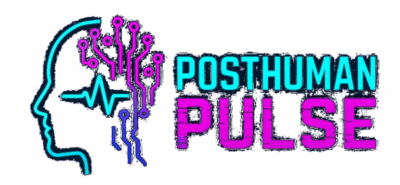Discover how the latest AI advancements are set to transform user interactions and healthcare applications.
In the ever-expanding universe of artificial intelligence, OpenAI and Google continue to set benchmarks with their cutting-edge advancements. OpenAI’s recent unveiling of the o3 models aims to boost reasoning capabilities, while Google’s ambitious plan to integrate an ‘AI Mode’ into its search engine promises more engaging user experiences. These developments are not mere technical feats; they hold the potential to redefine industries, particularly healthcare, where AI’s role is both promising and complex. This article dissects these breakthroughs, offering a window into the future landscape of AI and its multifaceted impact.
OpenAI’s o3 Models: A Leap in AI Reasoning
OpenAI has once again captured the spotlight with the release of its o3 and o3-mini models, successors to the o1 reasoning model. The decision to skip the o2 designation was a strategic move, sidestepping potential trademark conflicts with a UK telecom entity. This highlights a crucial aspect of AI development—brand positioning and legal foresight.
The o3 models are engineered to elevate AI’s reasoning capabilities. As AI systems become more integrated into daily life, their ability to “think” before responding is pivotal. This development aims to refine AI’s decision-making processes, making interactions more intuitive and reliable. This leap in reasoning capability could set new standards in AI applications, enhancing everything from customer service bots to complex data analysis tools.
Though specific statistics are sparse, the innovation speaks volumes about OpenAI’s commitment to pushing boundaries. The strategic naming decision underscores the importance of aligning technological progress with brand integrity, ensuring that legal hurdles do not impede innovation.
“OpenAI’s o3 models aim to refine AI’s decision-making processes, making interactions more intuitive and reliable.” TechCrunch Article
Google’s AI Mode: Transforming Search Interactions
Google is on the verge of a significant transformation with the introduction of ‘AI Mode’ in its search engine. This new feature is anticipated to resemble the Gemini chatbot interface, aiming to revolutionize how users interact with search engines. By expanding AI search summaries to more countries, Google is setting a precedent for more context-aware and intuitive search experiences.
The integration of AI Mode marks a shift towards more intelligent and interactive search functionalities. Users can expect a more personalized search experience where AI predicts and adapts to their needs. This could reshape how individuals and businesses access information, making searches not only more efficient but also more relevant.
Without concrete statistics or quotes available, the move indicates a broader trend towards AI-driven enhancements in everyday applications, highlighting Google’s role in leading this charge. The potential to change user interaction with digital platforms is immense, making this development one to watch closely.
“Google’s AI Mode signifies a shift towards more interactive and intelligent search experiences.” The Verge Article
AI in Healthcare: Challenges and Opportunities
AI’s role in healthcare is laden with both promise and complexity. The House Task Force on AI has outlined several challenges, including data quality, privacy concerns, and interoperability issues. Despite these hurdles, AI holds the potential to streamline drug approval processes and assist in radiological analyses.
AI’s ability to improve FDA drug approval rates by optimizing study designs and patient selection processes is transformative. This represents a significant leap in how medical research is conducted, potentially reducing time to market for new therapies and improving patient outcomes. Moreover, AI can enhance clinical decision support by tailoring it to individual patient needs, thus personalizing care and improving accuracy.
However, the challenges cannot be overlooked. Ensuring data quality and maintaining privacy are paramount. Addressing these issues is critical for AI to fulfill its potential in healthcare, suggesting that stakeholders must prioritize these concerns to leverage the full benefits of AI.
Impact & Implications: AI’s Transformative Potential
The advancements by OpenAI and Google signify a pivotal change in the AI landscape. These innovations promise more refined user interactions and substantial improvements in sectors like healthcare. The potential applications are vast—from enhancing search engine capabilities to revolutionizing medical research and patient care.
Despite the opportunities, challenges such as data privacy and ethical considerations remain prominent. It is crucial for the industry to navigate these issues carefully to harness AI’s full potential. As AI continues to evolve, its integration into daily life will expand, necessitating ongoing vigilance and adaptation to ethical and practical considerations.
Looking ahead, the focus should be on addressing these challenges while exploring AI’s transformative capabilities. Stakeholders must remain engaged, ensuring that these advancements lead to meaningful improvements across industries.

